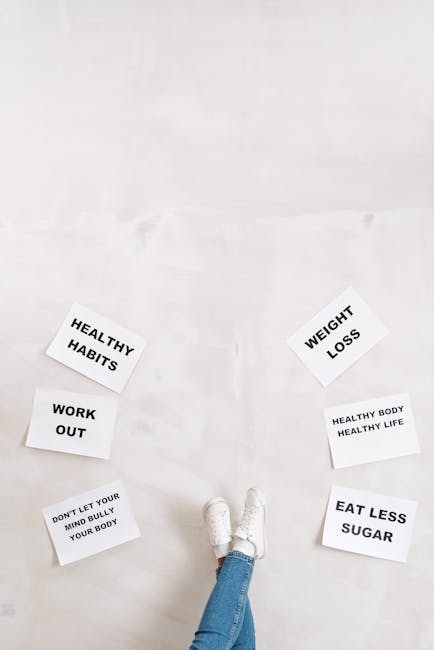How to Create a Balanced High-Mineral Diet for Weight Loss
In the quest for weight loss, many individuals focus primarily on calorie counts, macronutrients, and physical activity. However, one often overlooked element is the role of minerals in achieving and maintaining a healthy weight. Minerals are essential nutrients that play a critical role in metabolism, energy production, and overall health. In this blog post, we will explore how to create a balanced high-mineral diet for weight loss, ensuring you have all the tools needed to succeed.
Understanding the Importance of Minerals in Weight Loss
Minerals are inorganic substances that are crucial for various bodily functions. They are involved in maintaining bone health, fluid balance, nerve signaling, and muscle contraction. When it comes to weight loss, certain minerals can influence metabolic processes, enhance energy levels, and even help in reducing appetite.
The Role of Minerals in Metabolism
Minerals like iron, magnesium, and zinc are vital for metabolic health. Iron is crucial for the production of hemoglobin, which transports oxygen in the blood. A deficiency can lead to fatigue, negatively impacting your ability to exercise and burn calories. Magnesium is involved in over 300 enzymatic reactions in the body, including those related to energy production. Zinc plays a role in lipid and carbohydrate metabolism, influencing body weight and fat storage.
Key Minerals for Weight Loss
Calcium
Calcium is not just important for bone health; it also plays a role in fat metabolism. Studies suggest that a higher intake of calcium can increase fat oxidation, helping to burn more calories. Incorporate dairy products, leafy greens, and fortified plant-based milks into your diet to boost calcium levels.
Magnesium
Magnesium aids in converting food into energy and is essential for muscle function. It helps regulate blood sugar levels, which can prevent energy crashes and cravings. Foods rich in magnesium include nuts, seeds, whole grains, and dark leafy greens.
Iron
Adequate iron levels are necessary to maintain energy levels and support a healthy metabolism. Include lean meats, beans, lentils, and spinach in your diet to ensure you’re getting enough iron.
Zinc
Zinc influences the regulation of appetite and can help prevent overeating. It also supports a healthy immune system, keeping you active and less prone to illness. Foods rich in zinc include shellfish, legumes, and seeds.
Creating a Balanced High-Mineral Diet Plan
To create a balanced high-mineral diet for weight loss, it’s important to incorporate a variety of nutrient-dense foods. Here are some actionable tips to help you get started:
1. Prioritize Whole Foods
Focus on whole, unprocessed foods that are naturally rich in minerals. These include fruits, vegetables, whole grains, nuts, seeds, and lean proteins. Whole foods are not only nutrient-dense but also high in fiber, which can help you feel full for longer.
2. Include a Variety of Foods
Eating a diverse range of foods ensures you get a broad spectrum of minerals. Try to incorporate different colors on your plate, as this often indicates a variety of nutrients. For example, sweet potatoes, spinach, and blueberries are all rich in different minerals.
3. Don’t Forget Hydration
Water is crucial for mineral absorption and overall health. Staying hydrated can help prevent dehydration, which can sometimes be mistaken for hunger. Aim to drink at least 8 cups of water a day, and consider adding a slice of lemon or cucumber for added flavor and nutrients.
4. Monitor Portion Sizes
While minerals are essential, it’s important to keep portion sizes in check to avoid consuming excess calories. Use smaller plates, measure your servings, and practice mindful eating to better control your portions.
5. Consider Supplements
If you’re unable to meet your mineral needs through diet alone, consider discussing supplements with a healthcare professional. Supplements can help fill nutritional gaps but should not replace a balanced diet.
Sample High-Mineral Meal Plan for Weight Loss
To give you a better idea of how to incorporate minerals into your diet, here is a sample meal plan:
Breakfast
Oatmeal topped with chia seeds, almond milk, and fresh berries.
Lunch
Grilled chicken salad with spinach, quinoa, avocado, and pumpkin seeds.
Dinner
Baked salmon with roasted sweet potatoes and steamed broccoli.
Snack
A handful of mixed nuts or a piece of fruit.
Conclusion
Creating a balanced high-mineral diet for weight loss involves more than just counting calories. By focusing on incorporating a variety of mineral-rich foods into your meal plan, you can enhance your metabolism, reduce cravings, and support overall health. Remember, balance and variety are key. With these insights and strategies, you’re well on your way to achieving your weight loss goals while maintaining optimal nutrition.
For more tips and personalized advice, consider consulting with a nutritionist or dietitian to tailor a plan that suits your specific needs and lifestyle.

